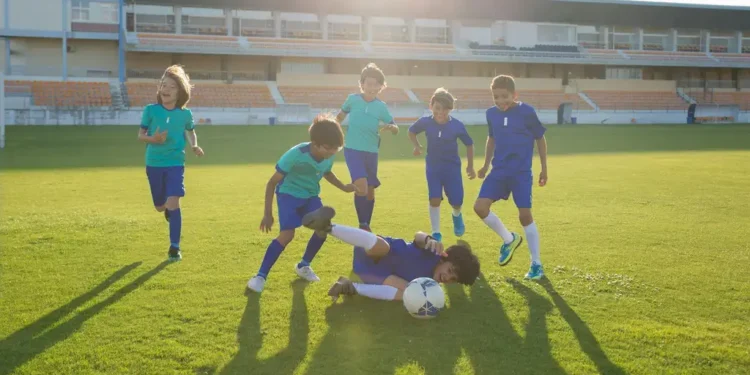Deciding when to introduce children to sports is a question most parents face as their kids grow. Engaging children in sports has numerous benefits, from encouraging a healthy lifestyle to fostering social skills. However, the timing of this introduction can have a significant impact on how they perceive and enjoy sports in the long term.
Understanding Child Development
Before enrolling a child in sports, it’s essential to understand their developmental stage, which varies greatly from one child to another. Physical, emotional, and mental readiness are crucial factors that differ by age, and recognizing these can make the experience enjoyable and beneficial.
For toddlers, which encompasses ages 2 to 5, sports should focus on fun activities that encourage movement and basic coordination. At this age, structured sports should be replaced with simple games that involve running, jumping, and throwing, which help hone motor skills without the pressure of rules or competition.
Sports for Younger Children (Ages 6 to 9)
By the time children reach 6 years old, they typically gain better physical coordination and the ability to follow directions, which makes them more suited for organized sports. Sports such as soccer, T-ball, swimming, and gymnastics are excellent starting points. These activities not only enhance coordination but also teach youngsters key values like teamwork and sportsmanship.
At this age, participation should be focused on fun and basic skill development rather than competition. Encourage children to try a variety of sports to discover what they enjoy most, allowing them the freedom to shift interests as their abilities and preferences evolve.
The Pre-teen Years (Ages 10 to 12)
As children grow into their pre-teen years, their physical capabilities and strategic understanding of games significantly improve. This is a great time to introduce them to slightly more competitive environments. Sports like basketball, volleyball, and track and field offer opportunities to develop specific skill sets while also maintaining physical fitness.
Pre-teens are more ready to handle structured activities and competition, but it is crucial to ensure that the main focus remains on learning and personal enjoyment, rather than winning. Encouraging self-improvement and resilience is key at this age.
Signs Your Child is Ready
Each child is unique, and understanding when they are ready to start sports can depend on several indicators. Look for signs that your child is physically active and interested in sports-related activities. Do they enjoy playground games with friends? Are they excited by the idea of learning new skills?
It’s vital to consider their emotional maturity as well. Can your child handle wins and losses gracefully? Are they able to follow instructions without becoming overly frustrated? These behavioral cues suggest a readiness to engage in the more structured environment of sports.
Balancing Sports and Other Activities
While sports can become a significant part of a child’s life, they should be balanced with other activities to provide a well-rounded development. Exposure to the arts, academics, and social gatherings is important to build a broad skill set and establish diverse interests.
Parents should aim for a healthy balance that does not overwhelm the child. Over-scheduling can lead to burnout, affecting both enthusiasm and performance across all areas of interest. Encourage your child to voice their preferences and respect their need for downtime.
The Role of Parents
Parents play a pivotal role in influencing their child’s sports experiences. It is important to offer support without putting undue pressure. Foster a positive atmosphere at home to encourage a love of sport that is independent of competition or achievement.
Attend games, celebrate participation, and engage in casual sports-related activities together as a family. This not only strengthens family bonds but also demonstrates that enjoying sports is a lifelong activity for physical and mental well-being.
Furthermore, choose sports programs that prioritize fun, skill development, and safety. Meet the coaches and understand their philosophy towards training to ensure it aligns with your goals for your child.
In conclusion, there is no one-size-fits-all answer to when a child should start playing sports. It largely depends on individual readiness and interest. Prioritize fun and development, encouraging children to explore a variety of sports in a supportive environment. This approach not only ensures the best for the child’s physical development but also instills a lifelong appreciation for sports and an active lifestyle.






